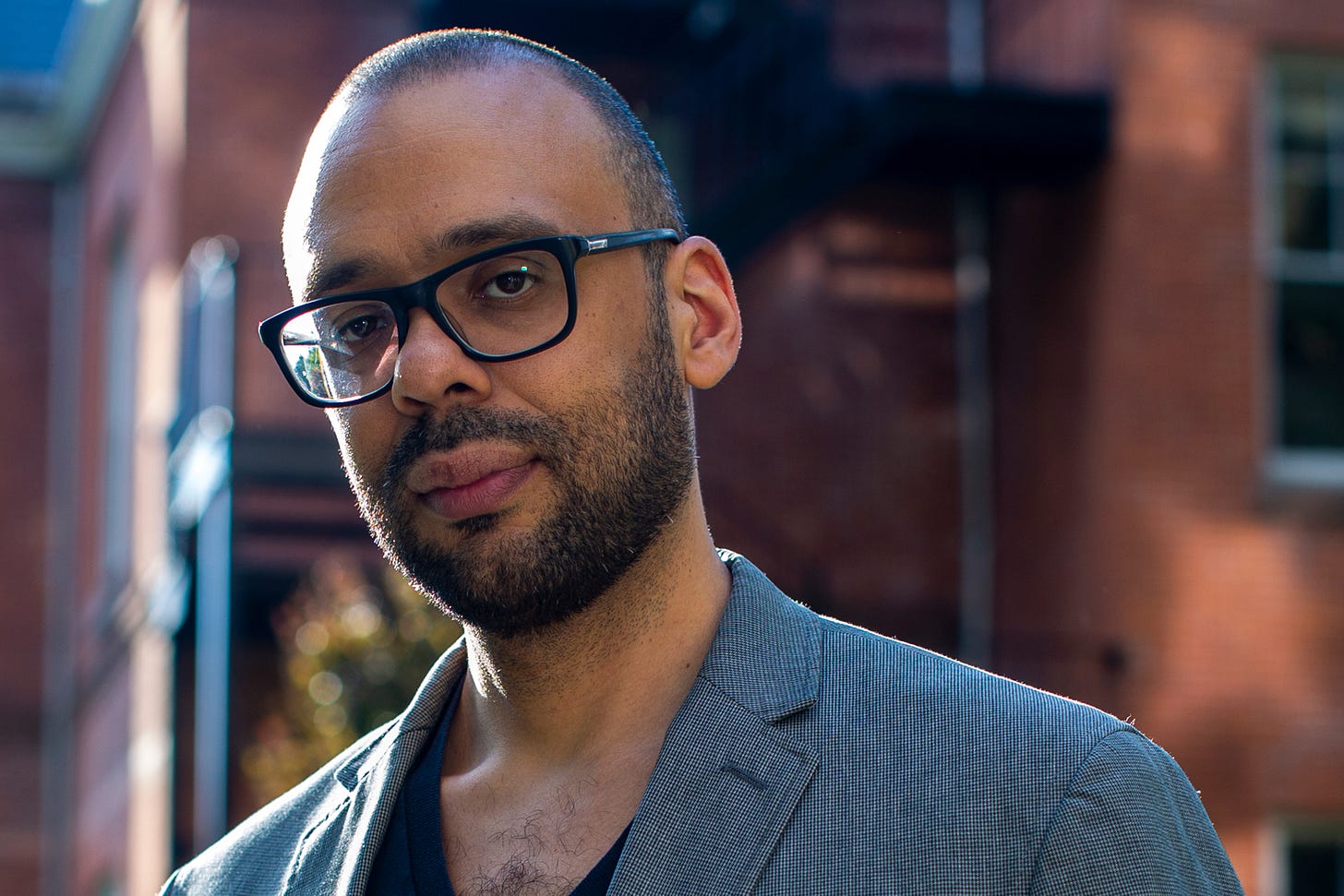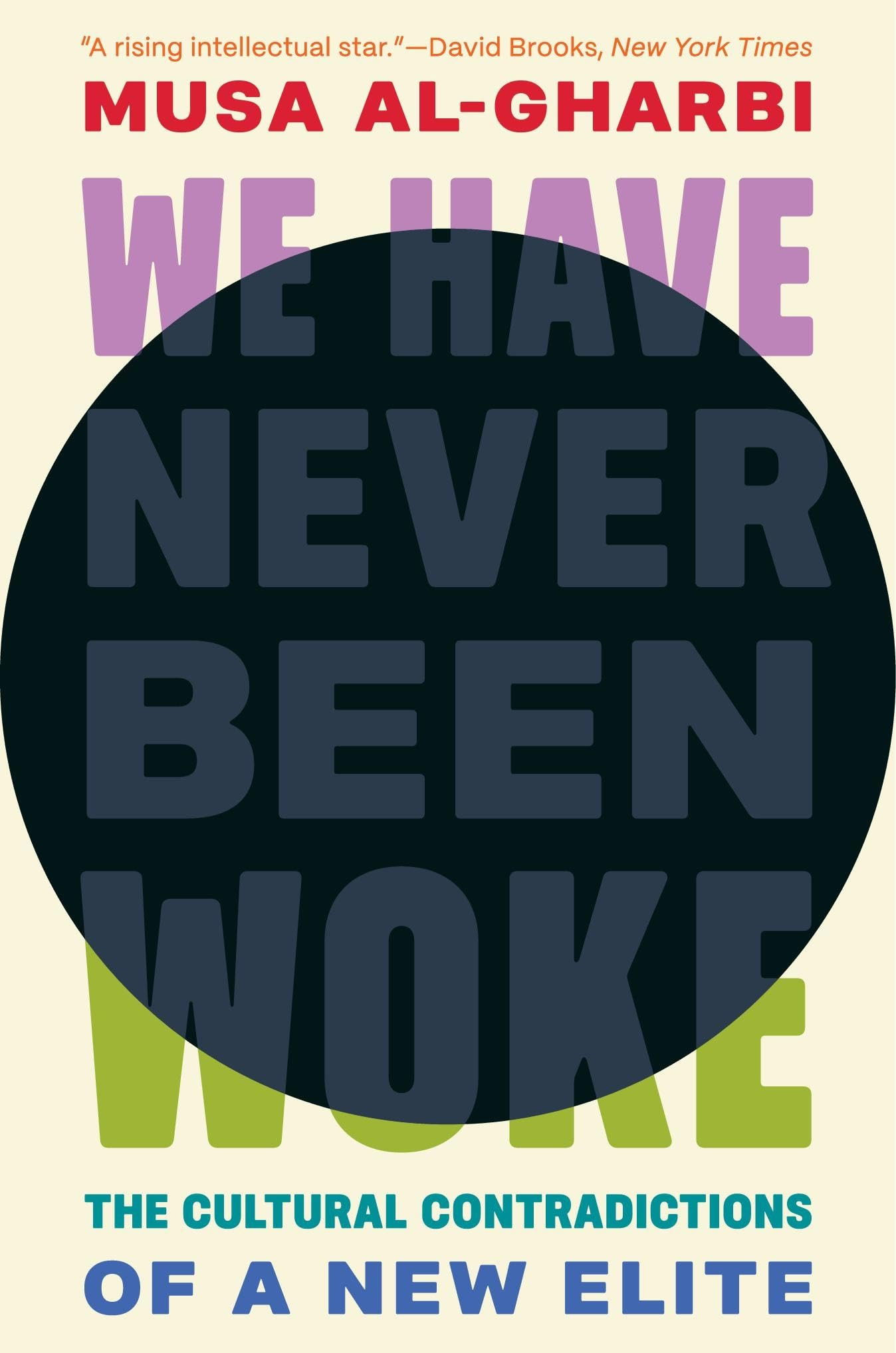Against woke capitalism
Graeme Kemp reviews ‘We Have Never Been Woke: the Cultural Contradictions of a New Elite’ by Musa Al-Gharbi (2024)
Musa Al-Gharbi’s We Have Never Been Woke is a rich and provocative analysis of contemporary cultural trends. It includes discussions of bizarre ‘woke’ stories and odd ideas that may seem laughable at first. Yet such examples reveal disturbing trends and insights around identity issues.
Yet, if you thought you’d read everything there is about ‘woke’ trends across the globe, then read Al-Gharbi’s book. It’s an academic but engrossing account of recent developments.
‘We have Never Been Woke’ focuses on the cultural power wielded by an elite class of what he terms symbolic capitalists. He details what he sees as their self-serving values. These ‘woke’ values are at odds with majority opinion in most countries on social issues. It is the power of these symbolic capitalists to influence wider society including the media, education and the state that interests him. Musa Al-Gharbi says that despite claiming to care deeply about the less well-off and the wretched of the earth, symbolic capitalists are playing games: their real focus is on maintaining their own power, social credibility and status.
So, who are these symbolic capitalists? Al-Gharbi explains…
“…symbolic capitalists are defined first and foremost by how they make
a living: nonmanual work associated with the production and manipulation
of data, rhetoric, social perceptions and relations, organizational structures
and operations, art and entertainment, traditions and innovations … Think
academics, consultants, journalists, administrators, lawyers, people who
work in finance and tech…” (Page 8).
So-called ‘wokeness’ is the ruling ideology of this select group of symbolic capitalists. Often it is the highly educated or affluent professionals who embrace or produce ‘woke’ discourses and norms. They are not a monolithic entity – not everyone involved in cultural production shares these values – but those values are arguably dominant in their social milieu.
The ‘woke’ values symbolic capitalists emphasise tend to focus on ‘social justice’ issues around race, gender, sexuality and other identity issues. More importantly for symbolic capitalists, it is about believing the right woke opinions on these issues and not being one of those ‘deplorable’ people who aren’t up to speed on this right way of thinking. Those who disagree must be excluded, even in the most inclusive social settings.
Key for Al-Gharbi in explaining such trends is the notion of symbolic capital described by the sociologist Pierre Bourdieu, author of the highly influential 1979 book Distinction. Bourdieu explained that symbolic capital consisted of the status resources held by certain individuals in areas such as honour or prestige. It denoted their ability to consecrate or endorse certain ideas – or grant recognition to other individuals or groups. Symbolic capital could be cultural, academic or political. Symbolic capitalists get to define what constitutes expertise or knowledge – and to say who is excluded from having the power to act or explain things in an acceptable way. Indeed, those who possess such cultural capital and influence are usually portrayed (by themselves!) as virtuous – and others as lacking virtue.
Musa Al-Gharbi explains how all the above plays out in everyday cultural life – he does so in a way that should be instantly recognisable:
“Finally, cultural capital is about demonstrating oneself as interesting, cool,
sophisticated, charismatic, charming, and so on. People reveal their cultural
capital through how they talk, how they carry themselves, their dress, their
manners, their tastes and expressed opinions…it is cultural capital that is
the least accessible to nonelites.” (Page 26).
Wokeness, he argues, has become the key source of cultural capital among elites today – the symbolic capitalists who dominate society. Symbolic capitalists are also rarely willing to give up their own privileged position or status in society, despite often attacking ‘privilege’.
Therefore “wokeness” (page 26) has come to represent being well-educated or from an elite background. Increasingly the jobs symbolic capitalists do require a degree or other higher educational qualifications.
For symbolic capitalists, the status conferred by holding the ‘right’ radical opinions on race and gender is vital to maintaining credibility among their select group. This can include professing to be an ally of ‘oppressed’ ethnic or sexual groups – even if members of those oppressed groups aren’t always impressed by all this. Ironically, the genuinely excluded, disadvantaged or less well-off in society don’t talk or think in the way symbolic capitalists do about identity issues, Al-Gharbi points out.
For symbolic capitalists, the language of diversity and inclusion is vital, as is an acknowledgement of lived experience (if it’s of the right kind) and expressed identities. Such values include a recognition of trauma or acknowledgement of victimhood, relating to ethnicity or gender. The ability to claim awareness of unconscious bias (usually in others) against minority groups matters too, as does a focus on racial disparities. Historical wrongs must be seen as a cause of present-day injustices, the elite (often white) symbolic capitalists claim.
Musa Al-Gharbi questions much of the reasoning above – including the idea that slavery in the past of the USA must be responsible for any racial disparities today. Racial disparities may be a result, he argues, of what some people are choosing to do in the present, such as discriminate on racial grounds, not the past. Individual agency matters.
And as Al-Gharbi notes:
“…many whites, in their eagerness to present themselves as advocates
for people of color and the cause of antiracism, neglect to actually
listen to ordinary Black or brown folks about what they find offensive
or harmful, or what their racial priorities are.” (Page 277).
Not everyone, including minorities, is woke…
Moral authority or knowledge – described as ‘totemic capital’ – can be gained by claiming membership of a historically oppressed or marginalised group. Indeed, the persecuted or exploited may possess an authenticity or authority, it seems, denied to others outside the group. Yet as Al-Gharbi illustrates – this desire to identify into certain ethnic groups has encouraged a whole range of people with dubious or no specific ethnic roots to do exactly that.
For example, in 2008 the author of ‘Love and Consequences’ Margaret Seltzer (also known as Margaret B Jones) was discovered to have invented her past life. Her tale of being half Native American and a former gang member wasn’t true – she had no recognised Native American heritage and grew up in a wealthy part of Los Angeles. When exposed, she claimed that her invention of such stories was the only way of getting people to listen to her and understand the plight of the marginalised.
And Seltzer isn’t alone, as Al-Gharbi explains. Several similar stories have come to light.
This obsessive focus on group identity and oppression can have material benefits to an individual, though, as well as conferring social status on the person claiming an identity. Charities, companies or the state may provide mentoring, scholarships or grants based on a claimed identity. All this can encourage bad behaviour among certain applicants.
As Al-Gharbi points out: elites can use a manufactured sense of victimhood to promote their own projects, public status and opportunities.
Al-Gharbi also highlights the often-authoritarian nature of this focus on social injustice, real and imagined:
“Even the acts of refraining from judgement, trying to stay out of conflicts, or
avoiding taking sides can look extremely suspect.” (Page 222).
Refusing to participate in Diversity, Equity and Inclusion (DEI) activity in a company or state institution could be seen as an example of this.
And this is where the consequences of ‘woke’ culture manifest themselves: not only in outright ethnic fraud and victimhood, but also in cancel culture and censorship.
Yet elites tend to cancel people who are often working-class, usually for failing to engage with new ‘woke’ language or opinions. Elites don’t tend to cancel each other. However, an over-emphasis on using the right ‘inclusive’ language can be a substitute for doing something real that changes issues like poverty. Wealth and power remain in the same hands.
However, holding a correct, virtuous ‘woke’ opinion improves the moral standing of symbolic capitalists…in contrast to the unenlightened.
Musa Al-Gharbi concludes the book with some provocative questions for the reader, which is intriguing. For instance, isn’t it the case that some of those who oppose ‘woke’ ideas really are prejudiced? Not every anti-woke critic is politically OK. So, how do we relate to people like that?
…and isn’t it the case that we’d often prefer the poor and marginalised in society to be uplifted without making any sacrifices ourselves?
Musa Al-Gharbi doesn’t deny though that racial disparities exist or that discrimination can happen. He provides the relevant facts and figures. He’s just sceptical about the view of the elites on such matters.
Ultimately, ‘We Were Never Woke’ aims to describe the cultural situation we find ourselves in today rather than propose solutions in detail. I would have liked to know more about what solutions Al-Gharbi would suggest. We badly need those answers (although there are strong signs it is already crumbling).
The book is a brilliant read though - and a thoughtful sociological contribution to the debate on ‘woke’ and identity.
‘We Have Never Been Woke: the Cultural Contradictions of a New Elite’ by Musa Al-Gharbi (2024)




He appears to be saying that woke ideology comes from people who have never done any real work. Which is probably true.